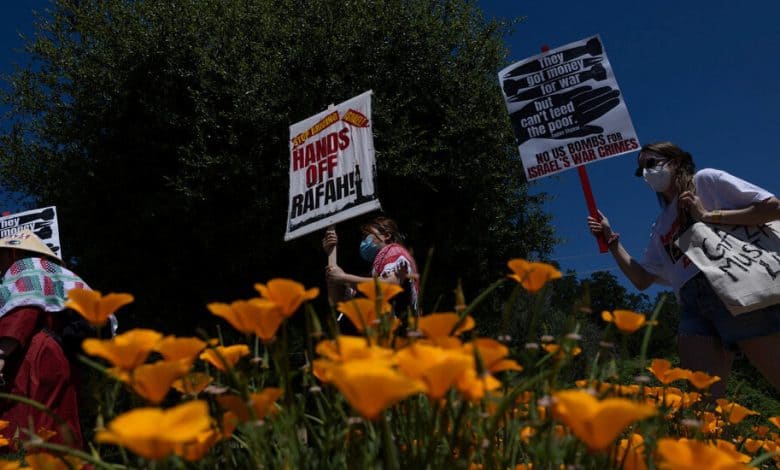What if This Is Our Last Real Election?

Some of the Americans protesting the war in Gaza have turned on President Biden. They assert that the government of Prime Minister Benjamin Netanyahu of Israel is killing huge numbers of civilians, which is true, and that Biden can stop it, which is more doubtful. But how do they deal with the reality that in a second term Donald Trump would be far more pro-Netanyahu and anti-Palestinian than our current president?
The answer I’ve been hearing is that the goal is to send a message: If Gaza costs Biden the election, Democrats will understand that in the next election they will need to rethink their seemingly reflexive support for Israel’s government and commit as a party to the protection of Palestinian rights.
There are many questions one could ask about this argument, but from a certain perspective, the most important one for American voters may well be: What next election?
There’s a very real possibility that if Trump wins in November it’ll be the last real national election America holds for a very long time. And while there’s room for disagreement here, if you consider that statement to be outrageous hyperbole, you haven’t been paying attention.
Yes, we can and should examine the candidates’ policy platforms and their potential effects, just as if this were a normal presidential election. But this isn’t a normal election; democracy itself is on the ballot. And it would be incredibly unwise not to take that into account.
Start here: Trump refused to accept the results of the 2020 presidential election, making evidence-free claims of fraud in his effort to overturn it. In the past couple of years, various polls have shown that somewhere around two-thirds of the Republican Party has co-signed his election denialism. And several leading party members have refused to say that they’ll accept the election results this year. Why imagine that they’ll become any more respectful toward future elections?